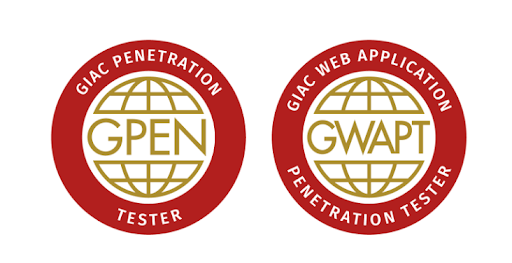Certified Penetration Testing
Upskilling Course, 80 Academic Hours
Comprehensive Cybersecurity Training with an Offensive Security Focus
- Nivel: Intermedio
To protect computer networks and digital assets, you sometimes need to be on the offense, and try penetrating them to uncover vulnerabilities. This comprehensive cybersecurity training course focuses on various aspects of offensive security. It covers infrastructure, application, and wireless security penetration test methods and techniques that can help build a career in cybersecurity in the fields of system pentesting, infrastructure pentesting, cybersecurity, web application pentesting, and cyber operations.
By enrolling in this course, you'll explore all the avenues of penetration testing, gaining a competitive edge and developing the capabilities to perform various security assessments seamlessly.
¿A quién va dirigido este curso?
- Security analysts
- Network and security engineers
- Ethical hackers
- IT managers
- Ciberinvestigadores
- Penetration testers
- Vulnerability assessors
Requisitos previos
- Knowledge of TCP/IP
- Basic knowledge of Windows and Linux command lines

Objetivos de aprendizaje
- Understanding the essentials of computer networks and architecture
- Leveraging Linux for ethical hacking practices
- Learning about privacy and anonymity
- Familiarization with Open-Source Intelligence (OSINT)
- Advanced protocol enumerations and scanning
- Identifying and assessing vulnerabilities
- Cracking passwords and secure access
- Hacking organizational systems, networks, and applications
- Evaluating post-exploitations
- Inspecting packets precisely
- Performing active sniffing attacks
Lo que obtendrá...
- Presentación del curso en formato PDF
- Fichas y documentación útil
- "Navaja suiza" - 3Gb de herramientas IR
- 42 hours of practical learning experience through hands-on activities
- Un certificado Wawiwa al finalizar con éxito el curso
In addition, you may choose to augment your team’s course to include preparation for relevant cybersecurity industry certification tests, at an additional cost. The cybersecurity certifications that this course can be used to prepare for include: GIAC Penetration Tester (GPEN) with CyberLive and GIAC Web Application Penetration Tester (GWAPT).

Certificaciones de ciberseguridad pertinentes
Nota: No se ofrece ni se garantiza una certificación industrial como parte del curso.
Supervisor profesional e instructores
Supervisa todos los cursos cibernéticos de Wawiwa el Sr. Nadav Nachmias, Jefe de Programas de Ciberseguridad de Wawiwa.
Los instructores del curso son profesionales de la ciberseguridad con experiencia práctica y conocimientos de formación. El nivel técnico del curso puede ajustarse en función de la audiencia.

Nadav Nachmias
Jefe de Programas de Ciberseguridad

Nadav es un especialista en ciberseguridad con más de 15 años de experiencia, centrado en estrategias de ciberseguridad, arquitectura y capacitación de la mano de obra. Su experiencia práctica le ha hecho intuitivo el desarrollo de diversos programas y materiales de formación en varios campos de la ciberseguridad (incluida la gestión de la ciberseguridad, la gestión y respuesta a incidentes y la ciberciencia forense).

¿Qué opinan los licenciados?

Programa del curso
Module 1: Getting Started with Fundamentals (6 Theoretical Hours, 5 Practical Hours)
- What is Information Security?
- CIA Triad
- Authentication, Authorization, and Accounting (AAA)
- Hacking Phases
- Ethical Hacking Concepts
- Understanding Common Hacking Terms
- Vulnerability Assessment
- Penetration Testing
- Concept of Red Teaming/Blue Teaming
- Information Security Controls and Policies
- OS and Network Basics
- Kali Linux
Module 2: Information Gathering Best Practices (7 Theoretical Hours, 8 Practical Hours)
- Footprinting
- Reconnaissance
- Intelligence Gathering
- Google Dorking
- Shodan
- Public Information and Information Leakage DNS
- Analysis and DNS Brute Forcing
- Discover Network Hosts
- Port Scanning
- Enumerate Listening Services
- Discover Vulnerable Attack Surfaces
Module 3: – Network and Infrastructure Penetration Testing (10 Theoretical Hours, 14 Practical Hours)
- Focused Penetration Testing
- Compromise Vulnerable Hosts
- Exploiting Missing Software Patches
- Using Metasploit to Exploit an Unpatched System
- Using the Meterpreter Shell Payload
- Generating Custom Shellcode for Exploit-DB Exploits
- Deploy Custom Executable Payloads
- Access Remote Management Interface
- DOS Attack Penetration Testing
- Sniffing and Spoofing
- Intrusion Detection System
- Firewall
- Network Device Security Audit
- Post-Exploitation and Privilege Escalation
- Harvesting Credentials from .dot Files
- Tunneling through SSH Connections
- Automating SSH Pubkey Authentication with Bash
- Scheduling a Reverse Callback Using Cron
- Escalating Privileges with SUID Binaries
- Maintaining Persistent Meterpreter Access
- Harvesting Domain-Cached Credentials
- Extracting Clear-Text Credentials from Memory
- Searching the Filesystem for Credentials in Configuration Files
- Using Pass-the-Hash to Move Laterally
Module 4: Web Application Pentesting (10 Theoretical Hours, 9 Practical Hours)
- Web Basics
- Basic Concepts of Web Applications, Working Principles
- HTML Basics
- Difference Between Static and Dynamic Websites
- Understanding HTTP Protocols
- Intro to Representational State Transfer (REST)
- HTTP Request and Response Headers
- What Is a Cookie?
- HTTP Proxy
- Server and Client Side with Example
- What Is a Session?
- Different Types of Encoding
- Web Application Penetration Testing Tools
- DirBuster
- Wfuzz
- Nikto
- wpscan
- Burp Suite
- Proxy Module
- Target and Spider Module
- Intruder Attack Types and Payload Settings
- Repeater Module
- Sequencer and Scanner Module
- Common Website Security Attacks
- Injection
- Broken Authentication and Session Management
- Cross-Site Scripting
- Insecure Direct Object Reference
- Security Misconfiguration
- Sensitive Data Exposure
- Missing Functional Level Access Controls
- Cross-Site Request Forgery
- Using Components with Known Vulnerabilities
- Unvalidated Redirects and Forwards
- XML External Entities
- A Closer Look at the 10 Ten Owasp Vulnerabilities
- Database Attacks
- SQL Injection
- Error-Based Injection
- Double Query Injection
- Boolean-Based Blind Injection
- Time-Based Blind Injection
- Dumping DB Using SQLMap
Module 5: Wireless Pentest (3 Theoretical Hours, 3 Practical Hours)
- Wireless Security Overview
- Introduction to the 802.11 Standard
- Aircrack-ng Kungfu
- EvilTwin Attack
- Wireless Security Tools
- Best Practices for Wireless and Wireless Enterprise Security
Module 6: Post-Engagement Cleanup (2 Theoretical Hours, 3 Practical Hours)
- Killing Active Shell Connections
- Removing Unnecessary User Accounts
- Deleting Miscellaneous Files
- Reversing Configuration Changes
- Closing Backdoors
Dé a su equipo la ventaja que necesita para triunfar con nuestros cursos completos, adaptados a sus necesidades específicas.
¿Le interesa conocer más detalles?
Estaremos encantados de responder a todas sus preguntas.
